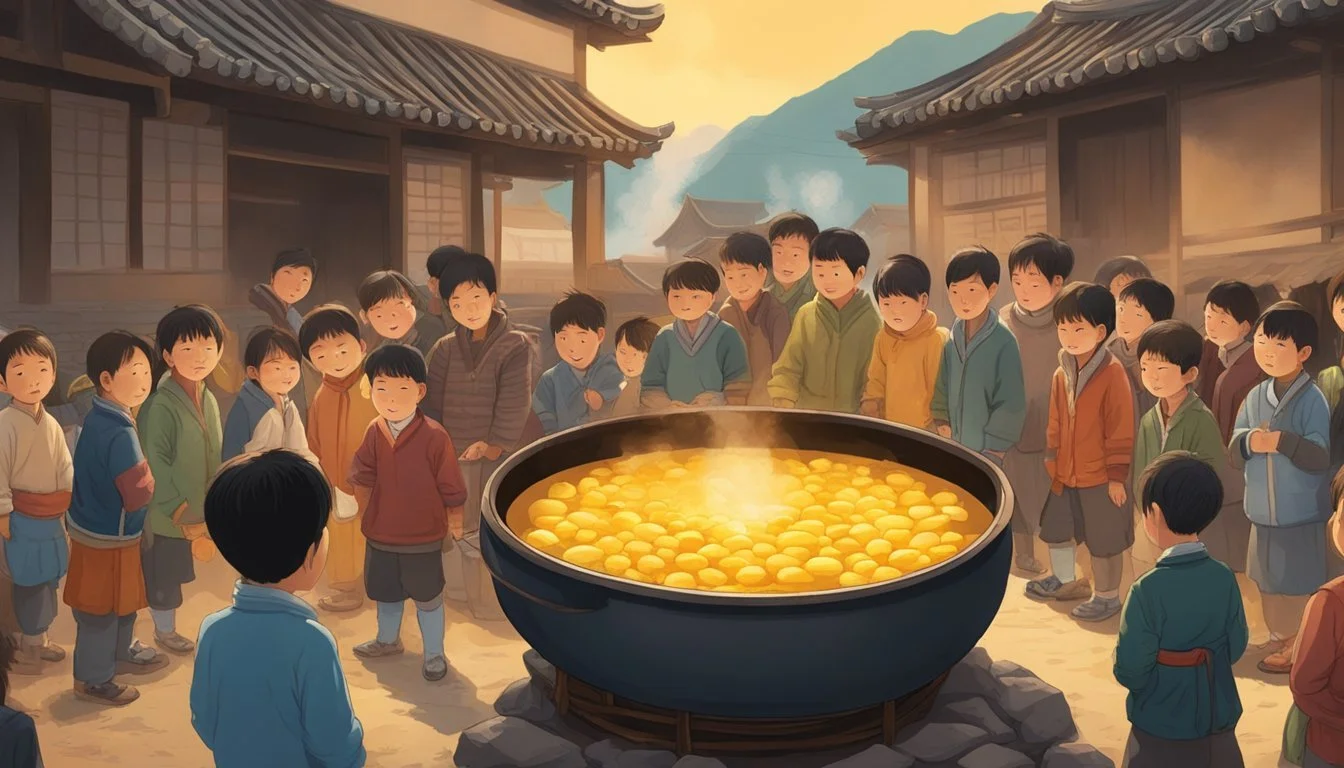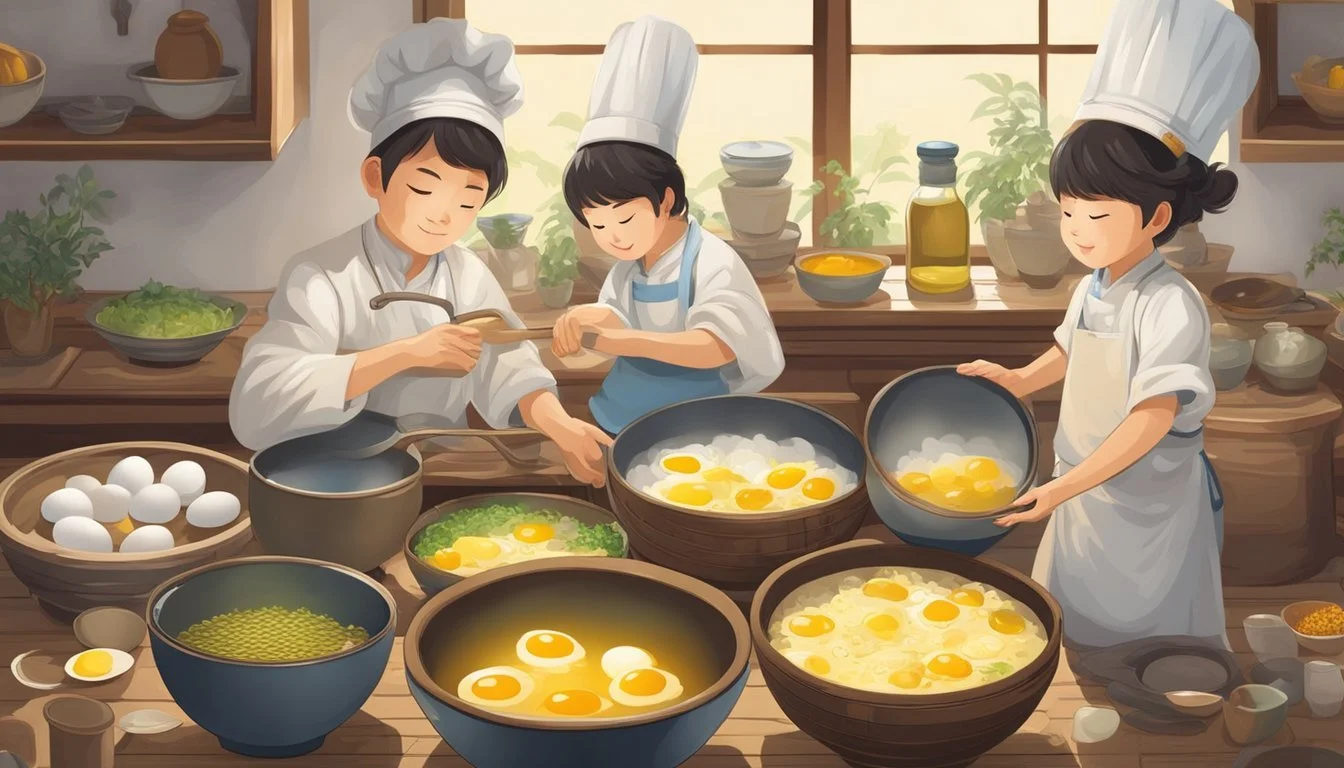Tong Zi Dan Unveiling the Tradition of Urine-Boiled Eggs in Chinese Spring Cuisine
In the heart of China's culinary tradition lies a delicacy that emerges with the coming of spring. Known as Tong Zi Dan, or Virgin Boy Eggs, this unique dish hails from Dongyang, a city in Zhejiang province. Characterized by its peculiar mode of preparation, the eggs are boiled in the urine of young boys, typically under ten years old. This practice, deeply rooted in local culture, claims not only to offer unique flavors but also to carry health benefits, with the community attributing therapeutic properties to the dish.
The origins of Virgin Boy Eggs are steeped in tradition, where ancient beliefs blend with modern practices. As spring rejuvenates the landscape, residents of Dongyang gather fresh urine from local schools to prepare the eggs. It is believed by some that consuming these eggs leads to improved circulation and reduced body heat, qualities particularly valued during the transition from the cold winter to the warmer days of spring. This traditional food item showcases a side of Chinese festivities that captures the blend of history and communal life.
Despite its controversial preparation method, Tong Zi Dan remains a reputable and anticipated feature of spring in Dongyang. To those unfamiliar with the tradition, it may seem an unusual, even challenging culinary practice, but for the locals, it represents a celebration of health, history, and the seasonal cycles that shape their cuisine and culture. The persistence of this practice hints at the profound depth of Chinese food (What wine goes well with Chinese food?) tradition, and its ability to withstand the test of time, remaining resilient in the face of ever-changing cultural landscapes.
Historical Significance
Tong Zi Dan, also known as "Virgin Boy Eggs," is deeply rooted in the local customs of Dongyang, a city in Zhejiang Province, China. It encapsulates significant cultural beliefs and practices that have been passed down through generations.
Origin and Evolution
Tong Zi Dan began as a traditional practice in Dongyang, where the unique method of boiling eggs in the urine of young boys, especially under ten years old, symbolized a connection to health and renewal. This practice has evolved over centuries and is closely linked to the arrival of spring, aligning with the season's theme of rebirth and vitality. The origin stories suggest that this culinary tradition is anchored in the belief that the eggs have therapeutic properties.
Cultural Heritage Status
Recognized as part of the region's intangible cultural heritage, Tong Zi Dan represents a significant aspect of Dongyang's status as a bearer of unique Chinese cultural heritage. While not listed at a national level, the tradition underscores the rich tapestry of local customs in Zhejiang Province. The preparation and consumption of these eggs continue to embody the longstanding cultural significance associated with health and the history of the local community.
Preparation Techniques
To create Tong Zi Dan, a traditional Chinese delicacy of eggs boiled in boys' urine, specific preparation techniques are utilized to ensure authenticity and flavor.
Collection of the Key Ingredient
The main ingredient for Tong Zi Dan is boys' urine, typically gathered from children under ten years of age. The collection process is conducted with care, ensuring the urine is fresh.
Boiling and Simmering Process
Once collected, the urine is brought to a boil. Boiled eggs are then soaked in the heated urine and left to simmer for several hours. This process infuses the eggs with the unique flavors and properties attributed to this dish.
Added Ingredients and Flavoring
To enhance the taste, various herbs and seasoning may be added to the urine during the simmering process. The choice of herbs depends on local traditions and flavor profiles sought by the preparer.
Cultural and Health Beliefs
Tong Zi Dan, a unique Chinese delicacy of eggs boiled in young boys' urine, is deeply rooted in traditional cultural practices and associated with various health claims. The preparation and consumption of these eggs, especially during the springtime, reflect age-old Chinese medicinal beliefs intertwined with modern-day debates over health and sanitation.
Traditional Chinese Medicine Perspectives
In the context of Traditional Chinese Medicine (TCM), Tong Zi Dan is considered beneficial for promoting blood circulation and improving one's overall health. TCM advocates suggest that these eggs possess properties that help in treating minor ailments and preventing conditions such as heatstroke. The practice, hailing from Dongyang, Zhejiang, China, is based on the premise that the purity of urine from young boys, ideally under ten years old, imparts unique therapeutic benefits to the eggs.
Modern Scrutiny and Sanitary Concerns
Contrasting with Traditional Chinese Medicine claims, modern medicine scrutinizes the hygiene implications and actual health benefits of Tong Zi Dan. Sanitary issues surface due to the unconventional use of human waste in food preparation, raising questions about the safety and cleanliness of the delicacy. While the tradition continues, there remains a lack of scientific evidence in modern medicine to support the health claims rooted in TCM practices. This contradiction between tradition and contemporary health standards elicits ongoing discussion and examination of Tong Zi Dan's place in present-day cuisine and medicine.
Local Practices and Variations
Tong Zi Dan, also known as Virgin Boy Eggs, is a dish that carries a significant cultural identity in certain regions of China. It is particularly associated with the Zhejiang Province, where the intricate preparation process and seasonal consumption reflect local traditions and customs.
Virgin Boy Egg Preparation Across Regions
In the Zhejiang Province, street vendors and local residents engage in the unique tradition of collecting urine from young boys, typically those under ten years of age. The Virgin Boy Eggs are then prepared by boiling them in this collected urine. While the overarching method remains consistent, minor variations are observed across different cities. Some regions may have specific preferences regarding the duration for which the eggs are soaked in urine, or slight differences in the boiling technique.
Variation in soaking time: Some vendors may soak the eggs longer than others, influencing the taste and texture.
Boiling technique differences: The approach to boiling and the type of pots used can differ.
Seasonal Availability and Demand
The demand for Virgin Boy Eggs tends to peak during the springtime, which is regarded as the optimal season for this delicacy. This period is crucial, as the practice is intertwined with the local belief in the eggs' health benefits, particularly for boosting one's vitality in line with the renewal themes of spring.
Springtime demand: Higher during this season due to cultural beliefs about health and vitality.
Popular among both locals and visitors: The eggs are sought after for their traditional value and the curiosity they spark among tourists.
The production and sale of these eggs during the spring also support a seasonal economy for the vendors who specialize in this dish. Despite the controversy in other parts of the world, local residents in the Zhejiang Province continue to relish Virgin Boy Eggs as part of their intangible cultural heritage.
Contemporary Discussions
Tong Zi Dan, a springtime delicacy in parts of China, has given rise to extensive ethical and health discussions in modern times. Its preparation—boiling eggs in the urine of young boys—proves controversial and sparks debate regarding its place in contemporary Chinese society.
Ethical and Health Discussions
Ethical concerns are primarily focused on the source of the urine and the treatment of children involved in the practice. Critics question the dignity and consent of this aspect, especially since it involves minors. In terms of health, the use of human waste products in food preparation inherently raises concerns regarding sanitation and the potential transmission of diseases. Despite historic claims of health benefits, such as increasing energy and improving circulation, modern medical scrutiny has placed such beliefs under skepticism. Proponents must counterbalance these claims with evidence-based research to validate any health properties of Tong Zi Dan.
The Delicacy's Place in Modern Chinese Society
In the context of modern Chinese society, Virgin Boy Eggs remain a cultural tradition in certain regions, particularly within Dongyang, Zhejiang. However, its acceptance and practice are far from uniform across the country. Urbanization and globalization have influenced public perception, challenging traditional practices with contemporary values. As a result, Tong Zi Dan has taken on a complex role, acting as both a marker of regional identity and a subject of national debate.
Cultural Significance: Marker of regional identity in Dongyang, Zhejiang
Sanitary Concerns: Debate on food safety and public health
Globalization: Conflicting views between tradition and modernity
While some street vendors continue to offer the unusual street fare as a testament to the region’s unique heritage, others question the place of such traditions in an increasingly health-conscious and globalized world.




